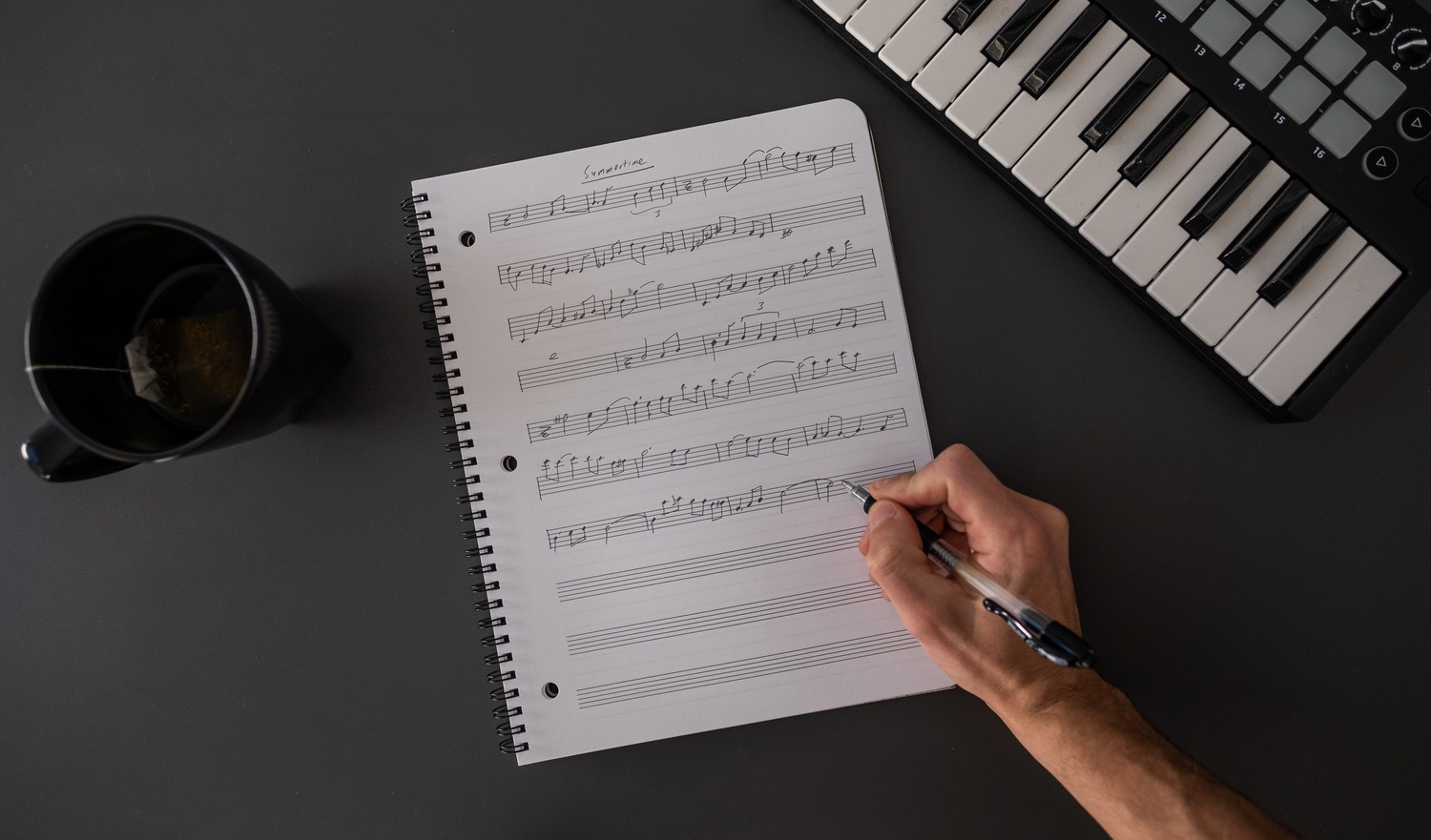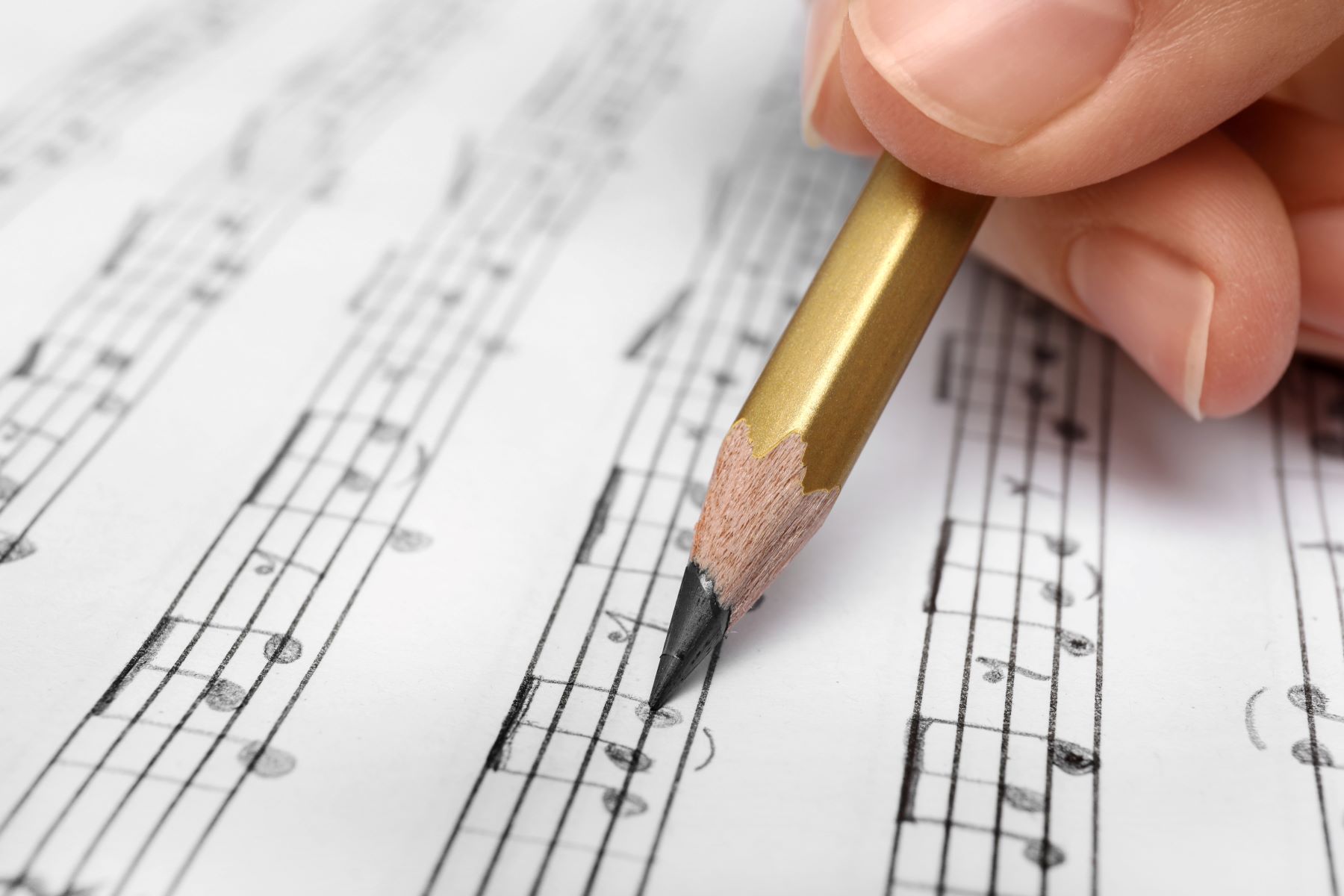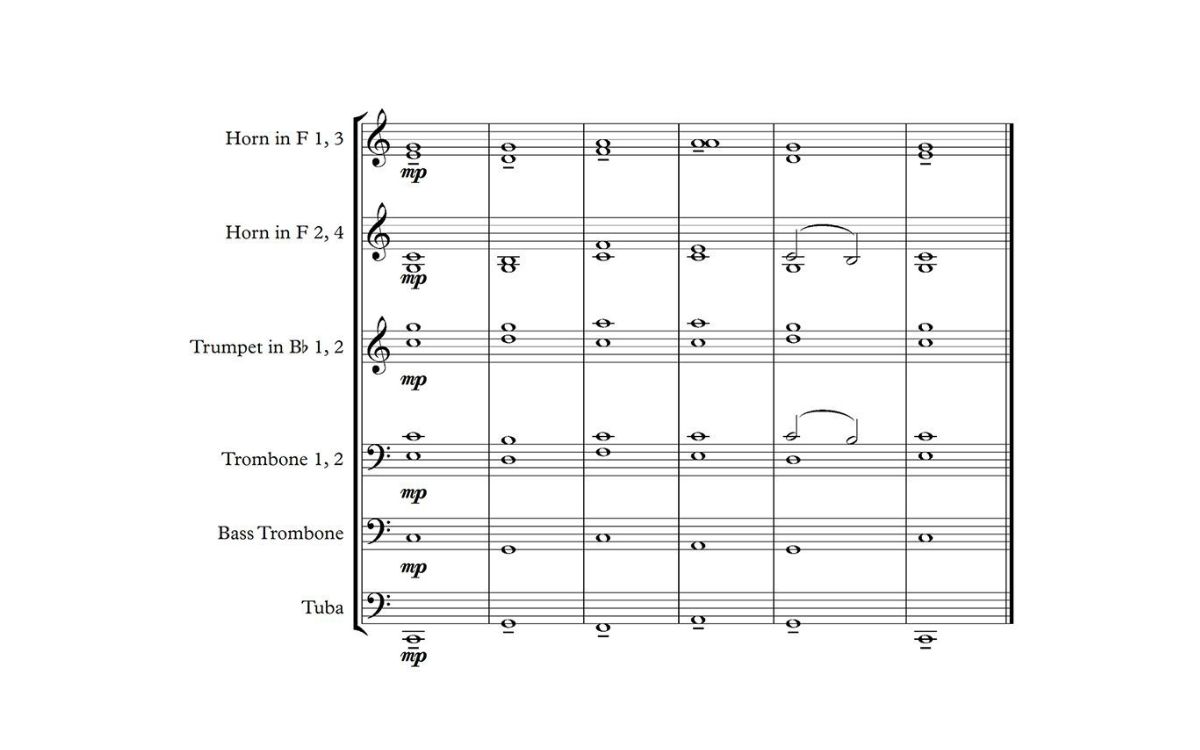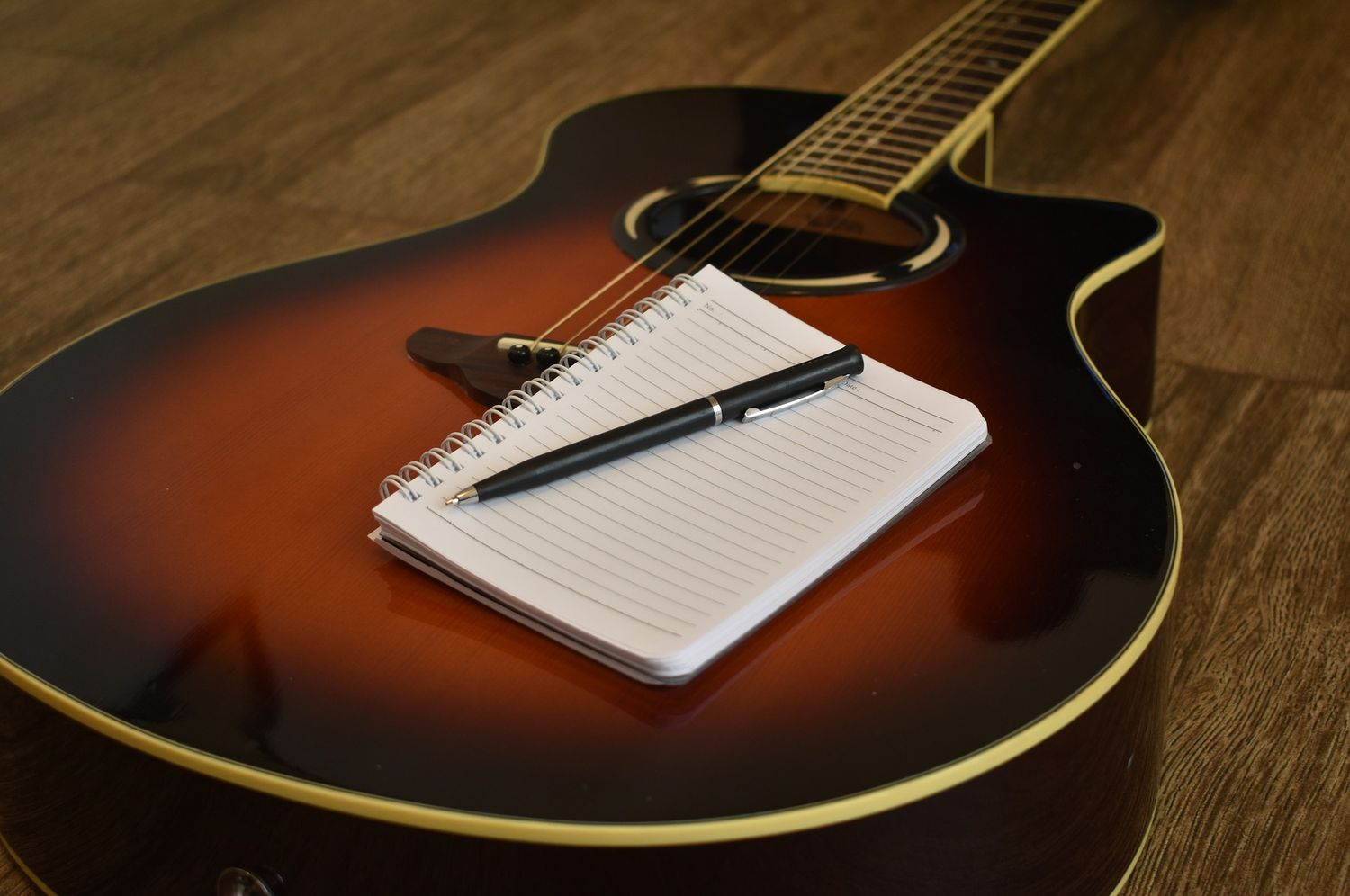Home>Production & Technology>DJ>How To Write A DJ Contract


DJ
How To Write A DJ Contract
Published: March 5, 2024
Learn how to create a comprehensive DJ contract to protect your business and ensure a successful event. Get expert tips and templates for your DJ contracts.
(Many of the links in this article redirect to a specific reviewed product. Your purchase of these products through affiliate links helps to generate commission for AudioLover.com, at no extra cost. Learn more)
Table of Contents
Introduction
When it comes to the dynamic world of DJing, the art of spinning tracks and creating an electrifying atmosphere is just one aspect of the profession. Behind the scenes, ensuring that all the necessary legalities are in place is equally crucial. This is where the DJ contract comes into play. A DJ contract serves as a vital tool for both the DJ and the client, outlining the terms and conditions of the agreement in a formal and legally binding document.
Crafting a comprehensive DJ contract is essential for not only protecting the interests of the DJ but also for establishing clarity and expectations with the client. It serves as a roadmap for the entire working relationship, covering everything from payment details and performance requirements to logistical considerations and liabilities. By clearly delineating these aspects, a well-written DJ contract minimizes the potential for misunderstandings and disputes, fostering a professional and transparent working environment.
In the following sections, we will delve into the intricacies of crafting an effective DJ contract, exploring the essential components that should be included, and providing valuable tips for ensuring that the contract is thorough and robust. Whether you're a seasoned DJ looking to refine your contractual agreements or a newcomer navigating the nuances of the industry, understanding the ins and outs of a DJ contract is paramount for safeguarding your professional endeavors and fostering successful collaborations. So, let's embark on this journey to demystify the art of drafting a DJ contract and empower you with the knowledge and tools to navigate the legal landscape of the DJing world.
Understanding the Basics of a DJ Contract
A DJ contract is a legally binding agreement that delineates the terms and conditions of the engagement between a DJ and a client. This document serves as a foundational framework for the working relationship, providing clarity and protection for both parties involved. At its core, a DJ contract is designed to outline the expectations, responsibilities, and obligations of each party, ensuring that all aspects of the DJ performance are clearly defined and agreed upon.
One of the fundamental purposes of a DJ contract is to specify the details of the event or engagement. This includes the date, time, and location of the performance, ensuring that both the DJ and the client are aligned on the logistical aspects of the engagement. Additionally, the contract typically outlines the duration of the DJ's performance, whether it's a set timeframe or for the duration of the event.
Another critical element of a DJ contract is the financial aspect. This encompasses the agreed-upon compensation for the DJ's services, including any deposit requirements, payment schedule, and potential additional costs such as travel expenses or equipment rentals. By clearly defining the financial terms within the contract, both parties can avoid misunderstandings or disputes related to payment.
Moreover, a DJ contract often includes provisions related to the services to be provided. This may encompass the specific music genres or styles requested by the client, any special requests or customizations, and the overall scope of the DJ's responsibilities during the engagement. By detailing these service-related aspects, the contract serves as a reference point for the DJ's performance expectations and helps manage the client's requirements.
Furthermore, a well-crafted DJ contract addresses the legal and logistical considerations associated with the performance. This may involve liability and insurance requirements, cancellation policies, and any necessary permits or licenses required for the event. By incorporating these provisions, the contract helps mitigate potential risks and ensures that both parties are aware of their respective obligations and rights.
In essence, a DJ contract serves as a safeguard for both the DJ and the client, providing a formalized agreement that establishes clear parameters for the engagement. By understanding the basics of a DJ contract, DJs can navigate the intricacies of contractual agreements with confidence, while clients can rest assured that their expectations are documented and protected.
Essential Components of a DJ Contract
-
Contact Information: The DJ contract should begin with the full legal names and contact details of both the DJ and the client. This includes addresses, phone numbers, and email addresses, ensuring that there is clear and accurate information for communication and documentation purposes.
-
Event Details: Clearly outlining the specifics of the event is essential. This includes the date, start and end times, and the exact location of the performance. Additionally, if there are multiple performance locations or different sets within the event, these details should be explicitly stated in the contract.
-
Services Provided: The contract should detail the scope of the DJ's services, including the type of music to be played, any special requests or custom mixes, and the DJ's responsibilities during the event. This section serves as a reference point for the client's expectations and ensures that the DJ is aware of the specific requirements for the performance.
-
Compensation and Payment Terms: Clearly outlining the financial aspects of the agreement is crucial. This includes the total compensation for the DJ's services, any deposit requirements, and the payment schedule. Additionally, if there are any additional costs such as travel expenses or equipment rentals, these should be explicitly stated in the contract.
-
Cancellation and Refund Policy: In the event of unforeseen circumstances or changes to the event, a well-defined cancellation and refund policy protects both the DJ and the client. This section should outline the procedures and potential fees associated with cancellations, as well as any refund policies in place.
-
Liability and Insurance: Addressing liability and insurance requirements is paramount. The contract should specify the extent of the DJ's liability during the performance and outline any insurance coverage needed for the event. This ensures that both parties are aware of their responsibilities in mitigating potential risks.
-
Technical Requirements: Detailing the technical needs of the DJ, including sound equipment, lighting, and any specific setup requirements, is crucial. By clearly defining these technical aspects, the contract ensures that the necessary infrastructure is in place for a successful performance.
-
Additional Terms and Conditions: Any additional terms and conditions specific to the engagement should be included in this section. This may encompass restrictions on the DJ's behavior, provisions for inclement weather, or any other unique considerations relevant to the event.
By encompassing these essential components, a DJ contract provides a comprehensive framework for the engagement, offering clarity and protection for both the DJ and the client. Each component serves as a building block in establishing a thorough and robust contractual agreement, ultimately fostering a professional and transparent working relationship.
Tips for Writing a DJ Contract
Crafting a well-structured DJ contract is a critical aspect of establishing a professional and transparent working relationship with clients. Here are some valuable tips to consider when drafting a DJ contract:
1. Clarity and Specificity
Ensure that the language used in the contract is clear, concise, and specific. Ambiguity can lead to misunderstandings, so clearly delineate the details of the event, services provided, and financial terms. Specificity in outlining the DJ's responsibilities and the client's expectations is key to avoiding potential disputes.
2. Legal Review
Consider seeking legal advice or review when drafting the contract. Legal professionals can provide valuable insights and ensure that the contract aligns with relevant laws and regulations. This step can help safeguard the interests of both parties and enhance the overall enforceability of the agreement.
3. Tailored Terms
Customize the contract to suit the unique requirements of each engagement. While there are standard elements to include, such as event details and payment terms, tailoring certain clauses to reflect the specific needs of the event and the expectations of the client can enhance the relevance and effectiveness of the contract.
4. Communication Channels
Include provisions for communication channels and points of contact. Clearly specifying how the parties will communicate regarding event details, changes, or any unforeseen circumstances can streamline the coordination process and ensure that both the DJ and the client are accessible to each other when necessary.
5. Flexibility and Contingencies
Incorporate provisions for unforeseen circumstances and contingencies. Events may be subject to changes or unexpected developments, so having clauses that address potential modifications to the agreement, as well as contingencies for adverse weather or other disruptions, can provide a framework for managing unexpected situations.
6. Professional Language
Maintain a professional tone and language throughout the contract. While the document should be approachable and easy to understand, it should also exude professionalism and reflect the seriousness of the engagement. A well-crafted contract contributes to the overall impression of the DJ's professionalism and attention to detail.
7. Review and Revision
Regularly review and update the contract to align with industry standards and legal requirements. As the DJ's career evolves and industry practices change, the contract should be periodically reviewed and revised to ensure that it remains relevant and effective in protecting the DJ's interests and meeting the expectations of clients.
By incorporating these tips into the process of writing a DJ contract, DJs can create comprehensive and effective agreements that not only protect their professional interests but also foster successful and harmonious collaborations with clients.
Finalizing the DJ Contract
After meticulously drafting the DJ contract, the finalization stage is pivotal in ensuring that all elements are in place for a comprehensive and legally sound agreement. This phase involves thorough review, communication with the client, and the execution of the contract. Here's a detailed look at the steps involved in finalizing the DJ contract:
1. Review and Verification
Before presenting the contract to the client, it's imperative to conduct a comprehensive review. This entails verifying the accuracy of all details, ensuring that the terms and conditions align with the agreed-upon arrangements, and confirming that the language used is clear and unambiguous. Additionally, a careful examination of the legal and logistical provisions is essential to address any potential gaps or inconsistencies.
2. Client Communication
Open and transparent communication with the client is vital during the finalization phase. This involves presenting the contract to the client for review, addressing any questions or concerns they may have, and facilitating a collaborative discussion to ensure that the contract accurately reflects the mutual understanding of the engagement. Clear and responsive communication fosters trust and transparency, setting the stage for a positive working relationship.
3. Legal Consultation
Seeking legal consultation, if not already obtained during the drafting phase, can provide an added layer of assurance. Legal professionals can offer insights into the enforceability of the contract, identify any potential legal risks, and provide guidance on optimizing the language to align with relevant laws and regulations. This step contributes to the overall robustness and legality of the agreement.
4. Execution and Signatures
Once all parties are satisfied with the contract terms, the final step involves the execution of the agreement. This entails obtaining signatures from both the DJ and the client, signifying their acknowledgment and acceptance of the terms outlined in the contract. Electronic signatures or notarization, where applicable, can further solidify the legal validity of the agreement.
5. Document Retention
Maintaining a well-organized record of the executed contract is essential. This includes storing digital and physical copies of the contract in a secure location, ensuring that it is easily accessible for future reference. Document retention is crucial for mitigating disputes, tracking payment schedules, and serving as a reference point for the duration of the engagement.
By meticulously navigating the finalization phase, DJs can cement the foundation for a successful and professional engagement. The attention to detail, clear communication, and adherence to legal considerations contribute to the overall integrity and efficacy of the DJ contract, laying the groundwork for a harmonious and mutually beneficial collaboration.











